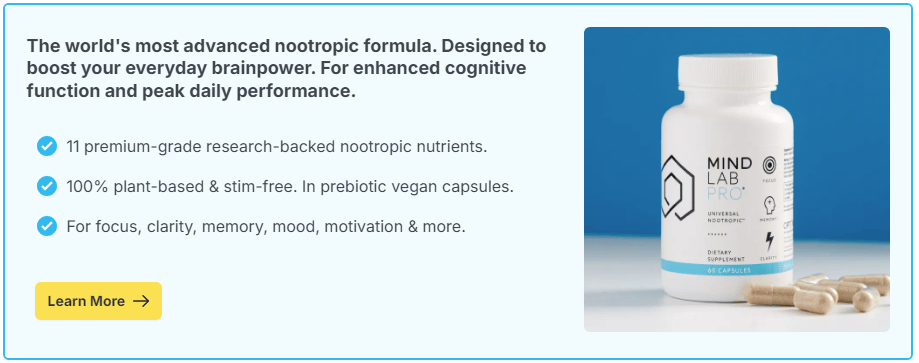- Enhancing Brain
- Posts
- You need to be BORED. Here’s why...
You need to be BORED. Here’s why...
Boredom feels uncomfortable, but it’s actually a gift.
When your brain isn’t overstimulated by ig reels, emails, or endless tabs, it starts making unexpected connections, rewiring itself in ways you can’t force.
That’s why some of history’s best ideas, Newton’s apple, Archimedes’ “Eureka!”, came in moments of stillness.
This issue is about why you need boredom, how it fuels creativity, memory, and problem-solving, and how to bring more of it into your own life without going insane.
The Anti-Boredom Era

Not long ago, boredom was everywhere. Waiting at the bus stop, sitting through Sunday sermons, even family dinners dragged without Netflix in the background. People just… sat there, staring, daydreaming, fidgeting.
That silence wasn’t comfortable, but it was normal.
Fast forward to today: boredom is basically extinct.
🔸 The average person now spends 3 hours 46 minutes a day on their phone.
🔸 In the US, it’s 3h 22m.
🔸 In Ghana, it’s a wild 5h 43m.
and that’s not including laptops, TVs, or work screens. Half a workday, every day, gone into the dopamine slot machine.
And we’ll do anything to avoid empty space...
Harvard psychologist Dan Gilbert ran an experiment where participants sat in a room for just 15 minutes with nothing to do. There was one button in front of them: press it, and you’d give yourself an electric shock. You’d think nobody would touch it. But 67% of men and 25% of women chose to shock themselves instead of sitting quietly. One guy hit it 190 times in a row.
That’s where we are…
We treat boredom like a bug in the system, something to escape at all costs.
What Your Brain Does When Nothing’s Happening

When you finally put the phone down and sit with “nothing,” your brain doesn’t power off. It switches to a whole different system called the Default Mode Network (DMN).
Think of it as your brain’s background app:
🔹 It replays old memories and stitches them into your story.
🔹 It fast-forwards, simulating possible futures.
🔹 It helps you weigh values, what actually matters vs. what’s noise.
🔹 It even runs “social simulations,” letting you imagine what others are thinking or feeling.
This network lights up the most when you’re bored, when you’re staring out the window, washing dishes, or walking without music.
🔸 A meta-analysis of 117 studies found that stepping away from tasks (incubation) boosted problem-solving in 29 out of 39 experiments.
🔸 In one study from the University of Central Lancashire, participants forced to do a dull writing task later came up with way more ideas in a creativity challenge.
🔸 EEG scans show that freely wandering thoughts trigger alpha waves in your frontal cortex, the same brain rhythm tied to creativity and “aha” moments.
So boredom is basically your brain’s compost bin. The dull, quiet stuff breaks down into unexpected connections and fresh ideas.
But here’s the catch, if you never let yourself be bored, the DMN never gets a chance to do its thing. And you’re stuck on a diet of shallow, surface-level thoughts.
Training Boredom Like a Skill

Boredom isn’t something you stumble into anymore, you have to train it. Like lifting weights or running, it’s a skill you build.
Right now, the stats are brutal...
Young adults report twice the rates of anxiety and depression compared to teens. Over 58% say they don’t feel meaning or purpose in their lives. At the same time, we’ve engineered away every idle moment with phones, podcasts, and endless tabs. That’s not coincidence.
But boredom, used right, is medicine:
🔹 Phone-free workouts: Studies show undemanding activity before a creative task boosts problem-solving. Next time you lift or run, leave your headphones at home.
🔸 Silent commutes: 15 minutes staring out the bus window does more for your brain’s Default Mode Network than another scroll through Instagram.
🔹 Structured boredom blocks: Schedule 2x15 minutes where you do nothing. Wash dishes, fold clothes, sit in silence. It feels awkward at first, but research shows these “incubation” periods lead to more and better ideas.
🔸 Digital curfews: Arthur Brooks (Harvard professor) bans phones after 7pm and never brings them to meals. Try setting a cut-off time two hours before bed.
🔹 Monthly detox: One 24-hour social fast resets your dopamine system. Cravings spike like withdrawal at first, but calm down. Attention, mood, and creativity rebound within days.
And if meditation is your thing, even better. Long-term meditators show quieter, more regulated DMN activity and sharper attention. But you don’t need a cushion, just practicing being bored on purpose works.
Boredom isn’t wasted time. Give your brain stillness, and it’ll grow connections, ideas, and meaning you can’t force through constant stimulation. 😌
Tools & Resources
Bored and Brilliant (book) - A practical guide on how boredom drives creativity, packed with real experiments and challenges to reset your relationship with tech.
Mind Lab Pro - My go-to nootropic. Supports focus, memory, and creative thinking so boredom sessions actually pay off.
Freedom (app) - Blocks distracting apps and websites on all devices. Perfect if you want to force boredom and stop the mindless scroll.
Amazon Kindle - Read instead of scrolling. Reading activates the same reflective networks boredom does, but with more structure.
Journal Notebook (amazon) - Keep a notebook handy and brain-dump whatever pops up. Boredom often surfaces your best ideas, writing them down locks them in.
Adult Coloring Books (amazon) - Simple, low-demand activity that lets your DMN wander while keeping your hands busy. Surprisingly effective for stress and creativity.
Thank you for reading 🙏
Yesterday on the train I forgot my headphones. No music, no podcast, it felt weird ngl.
Within 10 minutes my brain started firing ideas for this newsletter, a study plan for uni, even a reminder to text my mum. That “empty” time wasn’t empty at all, it was my default mode network switching on.
If you keep grabbing your phone every spare second, you kill that. You need boredom so your brain can connect dots, replay memories, imagine futures, and solve stuff you can’t brute force.
This week, try one commute in silence, or at least don’t take your phone to the bathroom. Let yourself be bored, poop in silence. Watch what shows up. 😉
See you next Sunday.
— Ernest
P.S. Check out previous issues @ EnhancingBrain.com

